
P2M International Symposium 2022 - AFTERMOVIE
Speakers:

Jan Schildmann
Institute for History and Ethics of Medicine, Halle/Saale, GERMANY
Jan Schildmann is a specialist in internal medicine with additional qualification in palliative medicine and director of the Institute for History and Ethics of Medicine at the Martin-Luther-University Halle-Wittenberg. He has studied medicine in Berlin, London, Madrid and New York and holds postgraduate degrees in medical law and ethics and philosophy. In his research, he combines normative and empirical methods to explore ethical challenges in clinical practice and medical research. One focus of his work is the development, implementation and evaluation of ethical interventions in medicine. Next to research he is interested in teaching students and health professionals on various topics related to ethics and communication in medicine.
Abstract – Precision Healthcare. Beyond medical data
Precision Medicine has focused on biological data. However, the current discussion as well as developments in precsision medicine miss an important point. This is to include non-biological data to realize the full potential of precision care.There is abundance evidence for the relevance of behavioural, psychological and social factors for health and healthcare. However, while the benefit of information on behaviours, social and further determinants for tailored health interventions has been taken up by scholars more recently, the debate still remains on a theoretical level. In addition, the methods and methodology of precision medicine have gained little attention outside genetics and biological medicine. To be able to realize the full potential of precision care we need empirical health care research to identify and characterise actionable non-biological determinants. Such basic research needs to be complemented by trials to determine the clinical benefits of tailored interventions. In this respect the lessons to be learnt from the last 20 years of precision medicine can inform health care research and pave the way to precise healthcare.

Alessandro Blasimme
Eidgenössische Technische Hochschule (ETH), Zürich, SWITZERLAND
Alessandro Blasimme is a senior scientist in bioethics at the Swiss Federal Institute of Technology Zürich (ETH Zürich). His work focuses on ethical and policy issues in biomedical innovation and biotechnology. His areas of expertise include translational medicine, precision medicine, regenerative medicine, genetic engineering, digital health and ageing. He has published widely in leading bioethics and medical journals and he is principal investigator in large national and European research consortia.
Abstract – Ethical Shifts in the Digital Medicine Era
Digital technologies are expected to have a transformative impact on biomedicine spanning biomedical research, clinical practice and public health alike. Ubiquitous digital devices and advances in data analytics fuel progress towards the coming of age of personalized medicine. A broad array of stakeholders – including patients – is implicated in the digital transformation of medicine. It is thus not surprising that new ethical and societal challenges accompany the growth of digital health.In this paper, I will first provide a definition of digital health and illustrate some notable examples of its rapidly expanding scope. Then, I will discuss pressing ethical and governance issues in this field.In the second part of the talk, I will focus on a specific domain of digital health, namely the use of artificial intelligence (AI) in medicine. I will illustrate specific ethics challenges linked to biases in existing datasets and challenges in the clinical interpretation of algorithmic outputs.Awareness regarding ethical and regulatory bottlenecks in digital health and medical AI is key to advance those fields for the benefit of patients.
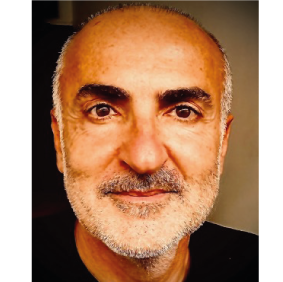
Jérôme Ausseil
Toulouse University Hospital, Toulouse, FRANCE
J. Ausseil is Professor in medical biochemistry and molecular biology at the Toulouse Health department of the University Paul Sabatier (UT3) and clinical biochemist at the Toulouse University Hospital. He is involved in the diagnosis of hereditary metabolic diseases and more particularly lysosomal storage disorders. He is also responsible of the regional newborn screening center laboratory (région Occitanie). Since 2020, he co-leads a research team (Team 5, Infinity, InsermU1291/CNRS5051/UT3) working on the pathophysiology of inflammatory and neuro-inflammatory disorders, and on the design and the development of new biotherapies and their implementation at the preclinical and clinical steps. J. Ausseil’s group is currently studying the functional and molecular status of microglia in Sanfilippo syndrome (Mucopolysaccharidosis III) and the production, composition and role of extracellular vesicles produced by microglia during neuro-inflammation. Few years ago, J. Ausseil was involved in the first phase I / II intracerebral gene therapy clinical trial on 4 Sanfilippo B children, the results of which were very promising. His group has recently started a new preclinical study on murine/canine and non-human primate models that combines intracerebral and peripheral administration of a new vector able to cross the blood brain barrier and the corresponding clinical trial for this neuropediatric disease is planned for the next few months.
Abstract
Lysosomal storage disorders (LSDs) constitute a group of almost 60 innate metabolic errors. These diseases are caused by mutations in genes encoding for acid hydrolases, integral membrane proteins, activators and transporter proteins, or other proteins involved in lysosomal function. Deficiencies of these molecules result in substrate accumulation in multiple organs or tissues causing a multitude of clinical symptoms characterized by multisystemic and progressive manifestations, of which neuropathology is the most common. In the brain, the progressive accumulation of the metabolite induces a series of pathological complications in particular neurodegeneration, neuroinflammation, and oxidative stress. Till the end of the 1980s, only support therapies were available for LSD patients. During the past two decades, different therapeutic approaches based on the physiologic mechanisms that regulate lysosomal function have been introduced. Among them, intravenous enzyme replacement therapy (ERT), the most common treatment for LSDs, does not address the neurological problems, as these recombinant enzymes are not able to cross the blood-brain barrier (BBB) due to their high molecular weight. To prevent this problem, other therapeutic options are being studied to treat neurological manifestations such as gene therapy, intracerebroventricular or intrathecal delivery of enzymes, substrate reduction therapy, fusion proteins that cross the BBB or pharmacological chaperones that helps in the refolding of misfolded proteins. Whatever the therapeutic option proposed, the lesson from the past years has highlighted the need for early diagnosis for these pathologies so that the benefit of the treatment is optimal.

Harald Schmidt
Maastricht University, Masstricht, NETHERLANDS
With a double degree in Medicine and Pharmacy, Harald Schmidt has a passion for network and systems medicine to re-define what we call “disease” from a descriptive symptom- and organ-based to a mechanism-based approach by using big data, innovative target validation, new mechanism-based diagnostics and rapid repurposing of registered drugs for new clinical applications by network pharmacology. He performs high risk/high potential gain research in areas of major medical need, such as the development and commercialisation of a first-in-class neuro-protective therapy in stroke, a therapy against a common and yet untreatable form of heart failure, and a therapy for resistant hypertension. He chaired the COST action OpenMultiMed on network and systems medicine, coordinates the H2020 project REPO-TRIAL on in-silico network pharmacology, leads the clinical work package in the H2020 programme FeatureCloud. From 2012-2017 he was awarded an ERC AdG, thereafter an ERC PoC grant. Together with Jan Baumbach he is co-editor-in-chief of the 2018 founded journal Systems Medicine and has founded the International Network Medicine Association (INMA.org). His multi-national (Germany, USA, Australia, Netherlands) research experience in Academia, Industry (Abbott) and Biotech (Vasopharm) has led to high impact publications (Hirsch 89) with high socio-economic relevance such as drug and diagnostics patents, spin-offs and patient benefit.
Abstract – The End of Medicine as we Know it
Existing drugs often fail to provide relevant benefit for most patients. The efficacy of the discovery of new drugs is low and in a constant decline predicting that pharma’s current approach may by the end of the 20’s no longer be financially sustainable. Also, why should we eternally need to discover new drugs. This poor translational success rate of biomedical research is due to lack of study quality and reproducibility and publication focus and bias. The most important reason, however, is our current concept of disease, i.e. mostly by organ or symptom, not by mechanism. Network Medicine will lead to a mechanism-based redefinition of disease, thereby enabling precision diagnosis and therapy. Due to drug repurposing this may eventually eliminate in many cases the need for drug discovery. Successful clinical drug repurposing will in turn also provide the necessary proof-of-concept for network medicine in general. If successful, we will need to reorganization of how we teach, train and practice medicine, moving from current organ-based disciplines, specializations and clinics and moving towards interdisciplinary board like structures. Examples of this new approach to disease include the redefinition of several cancers, immune diseases and a cluster of cerebro-cardio-metabolic phenotypes according their underlying molecular mechanism, including examples for drug repurposing and mechanism-based diagnostics. Importantly, a molecular disease mechanism is not a single protein, as currently often linked to common disease therapeutics, but always a signaling network. We observe however, that these networks in many cases differ from current signaling networks, which are rather mind maps of proteins assumed to function in a similar manner or use similar messengers. With respect to disease modules these networks are often smaller, overlap and thus lead to different drug repurposing decisions. Finally, since these mechanisms are networks, optimal therapy is a combination of drugs targeting several molecules within the same module in a synergistic manner. This allows low dosing and reduce the risk of any potential side effects. Finally, diagnostics are essential, in order to match patients that present both the phenotype and mechanotype and thus make therapies reach numbers needed to treat close to 1, i.e. that work in every patient.
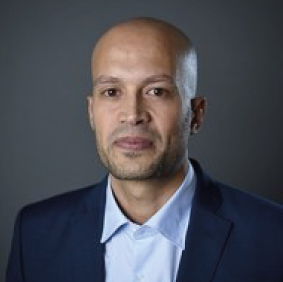
Michael Eriksen Benros
Copenhagen University Hospital, Copenhagen, DENEMARK
Professor Michael E. Benros, MD, PhD, is chief physician and head of research on Biological and Precision Psychiatry at the Mental Health Centre Copenhagen, Copenhagen University Hospital and at the University of Copenhagen. He got his medical degree and PhD at Aarhus University and conducted his psychiatric and neurological residencies at the Copenhagen University Hospitals. He has received a number of awards, including the prestigious Sapere Aude Research Leader award from the Independent Research Fond Denmark and the Highly Cited Researcher from Clarivate. He has served on several editorial boards, scientific advisory committees and is a board member of the Psychiatric Immunology Section of the World Psychiatric Association and of the European College of Neuropsychopharmacology (ECNP). He is recognized internationally for his ongoing involvement in clinical and epidemiological research into mental health, being at the forefront of the emerging field of ImmunoPsychiatry and Precision Psychiatry. He now leads a sizable effort to disentangle the role of the immune system in the development of severe mental disorders, combining immune exposures from the nationwide Danish registers, with immunogenetic investigations, and novel research on cerebrospinal fluid and blood obtained from biobank and clinical studies of patients with psychotic and affective disorders also utilizing omics and systems biology approaches. Furthermore, he is heading the Precision Psychiatry Initiative, utilizing the wealth of Danish nationwide data available that can now be analyzed with novel methods as machine learning approaches, aiming at paving the way for more precise diagnostics and new treatment targets for mental disorders.
Abstract – Advances Towards Precision Psychiatry
Currently, choice of treatment for mental disorders is determined by trial and error using a “one-size-fits-all” approach resulting in an unacceptably large proportion of non-responding patients. Previous research has been hampered by a focus on single exposures and single outcomes, not accounting for the complexity of mental disorders, hence not leveraging the wealth of data and novel data analytical approaches now available (computer-intensive methods accounting for non-linear relationships and patterns between risk factors and outcomes). Prof. Benros will, during this talk, discuss how Precision Psychiatry can increase the understanding of biological and behavioral mechanisms of mental disorders, and pave the way for more precise diagnostics, prevention and new treatment strategies.

Gaël Nicolas
Rouen University Hospital, Rouen, FRANCE
Gaël Nicolas is a neurogeneticist (MD in Neurology and PhD in Genetics) working as a professor and medical practitioner in Genetics in the University Hospital of Rouen (Department of Genetics and National Reference Center for Young Alzheimer Patients), the University of Rouen Normandie and the research unit Inserm 1245 (Rouen, France) with medical, research and teaching activities. His main medical activities include clinical diagnostics, genetic counseling and care of rare neurogenetic disorders as well as molecular genetic diagnostics. His research activity is centered on the genetics of neurological and psychiatric disorders with a specific focus on the genetics of Alzheimer disease, Primary Brain Calcification, and neurodevelopmental disorders. His research tools include exome and genome sequencing with diverse strategies including case-control association studies of rare variants. In early-onset Alzheimer disease, his main research findings include the identification of exome-wide significant enrichments of SORL1 rare variants, de novo mutations in sporadic cases, and oligogenic determinism. His main research aim is to make Alzheimer disease medical prevention possible thanks to the prediction of disease risk using personal genetic information.
Abstract – Risk Prediction in Alzheimer Disease
Alzheimer disease (AD) is the leading cause of dementia with no clinically relevant disease-modifying cure. Biomarker, imaging and neuropsychological data obtained from presymptomatic carriers of rare mutations in exceptional autosomal dominant families suggest that the pathophysiological mechanisms of AD start years, if not decades, before the first symptoms. Accordingly, recent results of clinical trials suggest that AD prevention using antibodies targeting the main triggering factor of AD, i.e. Aβ peptide aggregation, might be efficient if delivered years after the first symptoms. Thus, predicting AD appears necessary to enable personalized AD prevention. Beyond rare autosomal dominant forms, AD is a complex disorder with a high genetic component. Deciphering the genetic determinants of AD etiology is hence necessary to detect individuals with a high risk. Large-scale case-control genetic studies recently identified a number of genes modulating AD risk. Among them, results from so-called rare variants identified in exome and genome sequencing data are associated with the highest levels of risk. I will present the genetic landscape of AD, from common variants to rare variants, and discuss on how we can build novel strategies to gather such heterogeneous information at the individual level, to make AD personalized prevention a reality in the future.
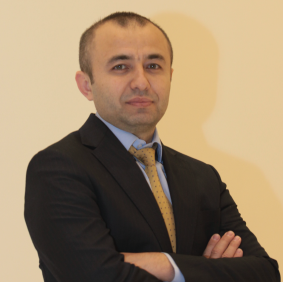
Adil Mardinoglu
King’s College, London, UK and Royal Institute of Technology, Stockholm, SWEDEN
Professor Adil Mardinoglu is an expert in the field of Systems Medicine, Systems Biology, Computational Biology and Bioinformatics. He has been recruited as a Professor of Systems Biology in Center for Host-Microbiome Interactions, King’s College London, UK where he leads a computational group. He also works as group leader in Science for Life Laboratory (Scilifelab), KTH-Royal Institute of Technology in Sweden and led a team of 25 researchers working in the area of computational biology, experimental biology and drug development to develop new treatment strategies for Metabolic diseases, Neurodegenerative diseases and certain type of cancers. Detailed bio can be found at: https://sysmedicine.com/people/
Abstract – The Use of Systems Biology in the Treatment of Liver Diseases
To develop novel strategies for prevention and treatment as well as to gain detailed insights about the underlying molecular mechanisms of liver diseases, it is vital to study the biological functions of liver and its interactions with other tissues and gut microbiota. Biological networks can provide a scaffold for studying biological pathways operating in the liver in connection with disease development in a systematic manner. In my presentation, I will present our recent work where biological networks have been employed to identify the reprogramming in liver physiology in response to NASH/NAFLD. I will further discuss how this mechanistic modelling approach can contribute to the discovery of biomarkers and identification of drug targets which may lead to design of targeted and effective personalized medicine.
Key points of my presentation
– Omics technologies are used in detailed characterization of human liver tissue in health and disease states.
– Biological network models are functional tools for exploring and integration of multiomics data.
– Systems biology uses a holistic and integrative approach for comprehensive analysis of the biological functions in healthy and diseased states
– Systems Biology approaches have been successfully employed in hepatology to identify biomarkers and drug targets.
– These integrative tools can be used for simulation of liver tissue functions and its crosstalk with other tissues for prediction of therapeutic and side effects.

Enzo Ranieri
Women’s and Children’s Hospital, Adelaide, AUSTRALIA
Enzo Ranieri is the Head of Biochemical Genetics within the Directorate of Genetics & Molecular Pathology, SAPathology at the Women’s & Children’s Hospital in Adelaide, South Australia. He holds an associate academic position at the University of Adelaide within the Faculty of Health & Medical Sciences. He obtained postgraduate higher degrees from Flinders University in the School of Medicine, Department of Neurophysiology and from the Faculty of Health and Medical Sciences at the University of Adelaide.
He has acquired over 25 years experience in Newborn Screening in biochemical genetics with certification in Biochemical Genetics as a Fellow of the Human Genetics Society of Australasia (FHGSA) and was appointed as a Fellow of the Faculty of Science of the Royal College of Pathologists of Australasia (FFScRCPA). He was appointed to the Board of the International Society of Newborn Screening in 2016 and serves on the committee responsible for Asia-Pacific region.
He is a member of the Human Genetics Society of Australasia (HGSA) and Australasian Society of Inborn Errors of Metabolism (ASIEM) and has served as a member on numerous committees and subcommittees for both the HGSA & ASIEM including the American Clinical and Laboratory Standards Institute (CLSI). He has served as a national committee member of the Australasian Newborn Screening and Metabolic Diseases and is currently a member of the standing scientific committee on quality assurance of the International Society of Newborn Screening (ISNS).
He has published numerous articles in leading scientific journals, books and reviews and has been an invited speaker at numerous international and national congresses and meetings as a keynote speaker. He has an international expertise in newborn screening for inborn errors of metabolism (IEM) using tandem mass spectrometry (MSMS) and his laboratory is considered a world leader in the field of neonatal screening being one of the first laboratories in Australia to implement MSMS into routine screening. He was one of the first pioneers and instrumental in the developed the two-tier IRT/DNA screening strategy for Cystic Fibrosis in December 1989. He has a strong interest in teaching and training having had numerous international scientific and clinical trainees spend time in the laboratory to undertake specialised training in all aspects of MSMS newborn screening for IEM. He also has a strong research interest in Metabolomics and the department is a leader in this new emerging field, specifically looking at MSMS to screen, characterise and monitor metabolic diseases.
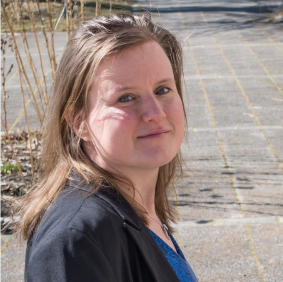
Nele Brusselaers
Universiteit Antwerpen, Antwerpen, BELGIUM
Karolinska Institutet, Stockholm, SWEDEN
Nele BRUSSELAERS is Associate Professor of Clinical Epidemiology at Karolinska Institutet in Stockholm (Sweden), where she is team leader of the epidemiology team at the Centre for Translational Microbiome Research (CTMR) and coordinator of the “Oncobiome” projects (microbiome and cancer). She also holds a fulltime Professorship at the Global Health Institute at Antwerp University, and is Guest Professor at Ghent University (both in Belgium). She completed her training as a medical doctor (2008), PhD (2010), master in infection control/hospital hygiene (2010) and first post-doc at Ghent University in Belgium; and moved to Sweden in 2012 where she lived until summer 2020 after which she moved back to Belgium. She also obtained a master in Epidemiology from the London School of Hygiene and Tropical Medicine (by distance learning, 2015).
Nele has extensive experience in clinical, cancer, microbiome and pharmaco-epidemiology by working with the Swedish nationwide health registries, several clinical (microbiome) cohorts and systematic reviews and meta-analyses, resulting in over 120 peer-reviewed articles. Nele has supervised 6 PhD students (9 ongoing) and 24 master students successfully, and teaches on graduate and post-graduate level, mainly on study design, epidemiology, systematic reviews, meta-analyses, microbiome etc.
Although she has a broad interest and experience in different clinical topics (incl. infectious diseases) with many international collaborations; her main focus is to investigate the long-term effects of commonly prescribed drugs on female health and early childhood, cancer and diseases of the gastro-intestinal tract, through potential drug-mediated alterations of the microbiome. Her overall aim is to contribute to optimizing clinical practice and long-term health– for which trans-disciplinary approaches and collaborations are increasingly required.
Abstract – Population Variation of Microbiota
Technical advancements have accelerated microbiome research making it more affordable and feasible to perform large scale studies with thousands, or even hundreds of thousands of samples. Although size matters, proper study design remains crucial since humans and especially their microbiota are more diverse than a litter of new-born rodents or a series of patients. Where do we recruit our study participants? Who are they and how healthy are they? What do they eat, and which medications do they use? Which factors are affecting our microbiome compositions at different anatomical niches including our gastro-intestinal and reproductive tracts?
During this talk I will discuss what we already know about our microbiome during the different phases of life, in sickness and in health, and which scientific challenges still lie ahead. As an MD and clinical epidemiologist, I approach the microbiome field from a clinical and public health perspective – and how the microbiome can become useful as a tool in precision medicine, from prevention to diagnosis and treatment.
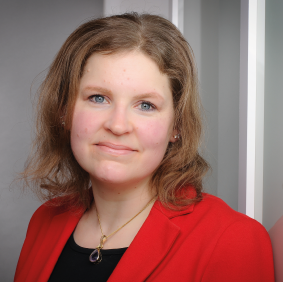
Almut-Katrin Heinken
University of Lorraine, Nancy, FRANCE
Almut Heinken is an Associate Professor at the Inserm 1256 unit (NGERE laboratory) and the University of Lorraine. She previously completed her PhD in systems biology at the University of Iceland, and a post-doc at the Luxembourg Centre for Systems Biomedicine. Afterwards, she worked as a Research Fellow at the National University of Ireland Galway. Her area of expertise lies in multiscale metabolic modelling of host-microbiome interactions and their role in human health. She uses the Constraint-Based Reconstruction and Analysis (COBRA) approach to build mechanistic, molecule-and strain-resolved models of metabolism. She has developed a widely used resource of genome-scale reconstructions of human microbes, AGORA, and its predecessor, AGORA2, which also accounts for microbial conversion of prescription drugs. AGORA has been applied in around 40 published studies to date. Almut has developed tools to build personalized microbiome models from AGORA that allow the stratification of patients and controls according to their microbiomes’ metabolic potential, and has applied these workflows to inflammatory bowel disease, Parkinson’s Disease, and colorectal cancer. She has also contributed to a whole-body model of metabolism that can integrate physiological parameters, diet, the microbiome, and drug use. Her goal is to further develop these established modelling frameworks to enable their use to predict personalized dietary and therapeutic interventions for precision medicine approaches.
Abstract – Genome-scale Metabolic Modeling of the Human Microbiome in the Era of Personalized Medecine
The human microbiome plays an important role in human health and disease. Meta-omics methods such as metagenomics, metatranscriptomics, and metabolomics have generated a wealth of publicly available data, yet their interpretation is lagging. Here, I propose genome-scale metabolic modeling as a mechanistic approach to integrate meta-omics data, resulting in testable hypotheses. I will introduce a resource of over 7,000 curated, genome-scale models of human microbes, AGORA2, and its application to interrogating drug-microbiome interactions. I will discuss how, through integration of metagenomic sequencing data, genome-scale models of human microbes can give rise to personalized models that can provide novel insight into metabolic changes in the microbiome in disease states. I will present recent applications of such personalized modeling of the microbiome approaches to multifactorial diseases such as inflammatory bowel disease, Parkinson’s Disease, and colorectal cancer. I will also introduce a whole-body model of human metabolism that can be personalized with physiological parameters, dietary information, and metagenomic sequencing data.
Finally, I will outline a workflow for how metabolic modeling could be used to contextualize data and findings from clinical trials. Personalized computational models could be built for each participant and subsequently interrogated through simulations. Simulation results could then be stratified through machine learning methods and correlated with clinical parameters through multivariate statistics. Ultimately, such a modeling framework could propose testable hypotheses that could be validated in prospective trials.
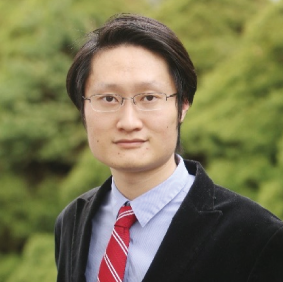
Y. Shrike Zhang
Harvard Medical School, Cambridge, USA
Dr. Zhang is an Assistant Professor in the Department of Medicine at Harvard Medical School and Associate Bioengineer in the Division of Engineering in Medicine at the Brigham and Women’s Hospital. Dr. Zhang is directing the Laboratory of Engineered Living Systems, where the research is focused on innovating medical engineering technologies, including 3D bioprinting, organs-on-chips, microfluidics, and bioanalysis, to recreate functional tissues and their biomimetic models for applications in regenerative medicine and personalized medicine. He is an author of >185 peer-reviewed publications (h-index: 52) and his scientific contributions have been recognized by >40 international, national, and regional awards.
Abstract – Tissue engineering and 3D printing for regenerative therapy
Over the last decades, the fabrication of three-dimensional (3D) tissues has become commonplace. However, conventional 3D fabrication techniques are limited in their capacity to produce complex tissue constructs with the required precision and controllability that is needed to replicate biologically relevant tissues. To this end, 3D bioprinting offers great versatility in the fabrication of biomimetic volumetric tissues that are structurally and functionally relevant. It enables precise control of the composition, spatial distribution, and architecture of bioprinted constructs facilitating the recapitulation of the delicate shapes and structures of targeted organs and tissues. This talk will discuss our recent efforts in developing a series of advanced 3D bioprinting strategies along with various cytocompatible bioink formulations. These platform technologies are likely to provide new opportunities in constructing functional tissues to facilitate regeneration and microtissue models for promoting personalized medicine.

Ronan Cahill
Mater Misericordiae University Hospital, Dublin, IRELAND
Professor Ronan Cahill is a Consultant Colorectal Surgeon at the Mater Misericordiae University Hospital (MMUH) and Full Professor of Surgery at University College Dublin (UCD)/MMUH having been appointed to both positions in June 2014. In 2019, he was appointed as Head of the Section and Subject of Surgery and Surgical Specialties in UCD in 2017. Also in 2019, he was appointed Director of the Centre for Precision Surgery, UCD and the Digital Surgery Unit, MMUH.
Ronan graduated MB,BAO,BCh (Hons) from University College Dublin in 1997 and then completed his basic and specialist surgical training in Ireland, gaining both MD by thesis (Health Research Board Clinical Research Fellow) and FRCS by examination. Thereafter, he was a clinical fellow at the IRCAD/EITS Institute in Strasbourg, France from 2007 to 2008 before moving to the Oxford Radcliffe Hospitals as senior clinical fellow from 2008 to 2010. Ronan returned to Ireland in 2010 as consultant general surgeon (specialist interest in colorectal surgery) at Beaumont Hospital before moving to the Mater and UCD. He is a recipient of both the Bennett and Millen Medals (RCSI Millen Lecturer 2010) and was the ASGBI Robert Smith Lecturer in 2014. He has authored over 275 peer reviewed publications, five book chapters and four National Guidelines. He has served as editorial board member of five indexed surgical journals, including Colorectal Disease and the European Journal of Surgical Oncology and has been a member of the SAGES Research Committee (SAGES Career Development Award recipient 2009). He has a major academic interest in Surgical Innovation, New Technologies and Clinical Trials and has active basic science, clinical and device development research partnerships both nationally and internationally. Most recently he is co-awardee of a major Disruptive Innovation and Technologies Fund (DTIF) award by the Irish Government for a project entitled “The Future of Colorectal Cancer Diagnosis and Treatment” (a consortium including UCD, RCSI, IBM Research and Deciphex) using artificial intelligence for decision support in surgery and pathology and of European Horizon 2020 consortium award entitled “PORSAV, Protecting Operating Room Staff Against Aerosolised Viruses” (a consortium including UCD, IRCAD, PALLIARE and Steripak). His major clinical specialty is in the minimal invasive management of diseases of the colon and rectum including colorectal cancer, inflammatory bowel disease and proctology.
Abstract
Personalised medicine indicates doing “the right thing in the right place at the right time” for the individual person receiving care. In surgery, such precision most relates to the emerging field of Digital Surgery which is the combination of real-time analytics with technology and the operator own expertise during the act of surgery and so the time-frame for such decision-support needs to be within moments. While of course there is considerable ongoing application of patient triage and categorization methodology around surgery (including preoperative selection and optimization as well as postoperative risk prediction and realization), the key driver of surgical outcomes at this phase of the 21st century will be better surgery through intraoperative analytics. Although image-guidance is widespread now in orthopaedics, neurosurgery and opthalmology, general surgery has lagged behind due to issues with dynamic registration, complexity of decision-tree cascades encounter commonly in major visceral resections and the necessity to embrace video rather static imagery. While robotic systems may represent applicable platforms for such data synthesis and display, currently available robotic system do not provide such capability partly explaining why generally clinical outcomes haven’t augmented significantly outside of pelvic urology despite increasingly widespread adoption. Cognitive technologies such as fluorescence-guidance in contrast have the capability to shift curves to the right generally and can be applied, potentially through software, globally everywhere laparoscopic surgeries are performed. Alongside capable existing technologies, large scale randomized controlled trials are nearing completion despite the pressures of the pandemic heralding a near-term step change in intestinal surgery. Further, and perhaps helped by the pandemic, visual support systems have enabled remote proctorship and consensus decision-support during critical intervention. These steps along with the emerging capability to harness the power of operative video at scale indicate how Precision Surgery can soon come of age in parallel with allied medical specialties.

Kenneth Mandl
Harvard Medical School, Boston, USA
Ken Mandl directs the Computational Health Informatics Program at Boston Children’s Hospital and is the Donald A.B. Lindberg Professor of Pediatrics and Biomedical Informatics at Harvard Medical School. His work at the intersection of population and individual health has had a unique, sustained influence on the developing field of biomedical informatics. He was a pioneer of real time biosurveillance, tracking infections and detecting outbreaks with diverse data. Cognizant of the limitations of extant electronic health record systems, Mandl developed a widely-adopted, highly influential approach (SMART)–substitutable apps that run universally on health IT systems. SMART lets innovators reach market scale and patients and doctors access an “app store for health.” Through the 21st Century Cures Act, SMART is now regulated as the standard interface by which patients, providers, and apps access data from electronic health records. He applies open source inventions to lead EHR research networks. He leads Genomic Information Commons across eight leading children’s hospitals, participating in a federated model for genomic intelligence. Dr. Mandl is a member of the National Academy of Medicine, American Society for Clinical Investigation, Society for Pediatric Research, American College of Medical Informatics and American Pediatric Society. He is a recipient of the he Presidential Early Career Award for Scientists and Engineers, the Donald A.B. Lindberg Award for Innovation in Informatics.
Abstract – Population Health and the Precision Medicine Ecosystem
Precision care for the individual requires multilevel insight into the biology, health, outcomes, and trajectories of populations. However, researchers and care delivery systems have faced nearly insurmountable barriers to permissioning and combining data from the care delivery system and research measurements. Mandl will discuss key underpinnings of an interoperable precision health ecosystem, affording access to broad population data. Important features will be parsimonious standards, targeted governmental regulation, and federated models for sharing and collaboration.